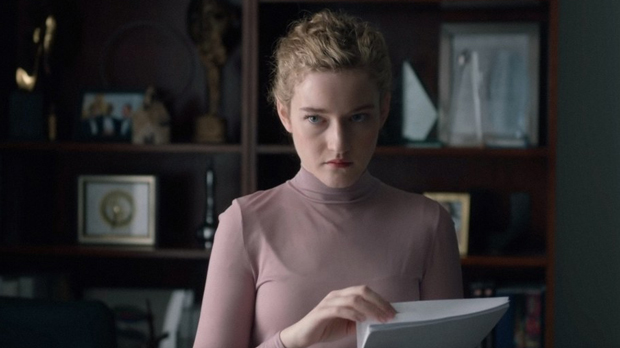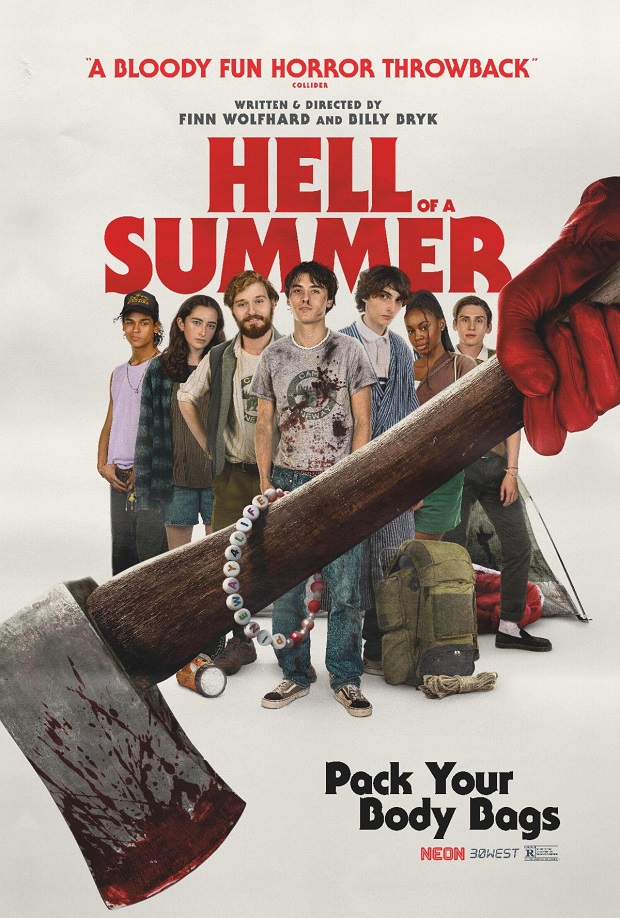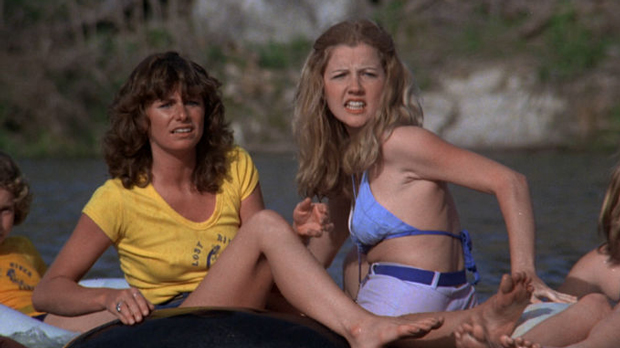 The Assistant (2020) Bleecker Street/Drama RT: 87 minutes Rated R (some language) Director: Kitty Green Screenplay: Kitty Green Music: Tamar-kali Cinematography: Michael Latham Release date: February 14, 2020 (US) Cast: Julia Garner, Matthew Macfadyen, Makenzie Leigh, Kristine Froseth, Jon Orsini, Noah Robbins, Stephanye Dussud, Juliana Canfield, Alexander Chaplin, Dagmara Dominczyk, Bregje Heinen, Lou Martini Jr., Liz Wisan, Clara Wong, Sophie Knapp. Box Office: $1.4M (US)
The Assistant (2020) Bleecker Street/Drama RT: 87 minutes Rated R (some language) Director: Kitty Green Screenplay: Kitty Green Music: Tamar-kali Cinematography: Michael Latham Release date: February 14, 2020 (US) Cast: Julia Garner, Matthew Macfadyen, Makenzie Leigh, Kristine Froseth, Jon Orsini, Noah Robbins, Stephanye Dussud, Juliana Canfield, Alexander Chaplin, Dagmara Dominczyk, Bregje Heinen, Lou Martini Jr., Liz Wisan, Clara Wong, Sophie Knapp. Box Office: $1.4M (US)
Rating: *** ½
NON-DISCLAIMER: Any resemblance between The Assistant and real-life events is probably intentional.
The Assistant, a searing drama written and directed by Kitty Green (Casting JonBenet), centers on a day in the life of young woman named Jane (Garner, Ozark), assistant to a powerful executive at a Manhattan-based movie studio. Over the course of one long day, she becomes aware of what’s going on behind closed doors with her boss and the stream of young women that file in and out of his office. Can she say something without actually seeing something?
I think we all know who the boss, referred to only as “he”, is meant to be. If you’ve been following the story that first broke in 2017 and sparked the whole #MeToo movement, you know exactly who I’m talking about. He’s never mentioned by name in The Assistant nor is he ever seen in full. He’s either seen as a dark blur passing in front of the camera or heard as a voice through the door, the thin office walls or on the phone. When he speaks, it’s garbled and angry. The words aren’t always clear, but the tone is distinctively threatening. He’s more a malevolent entity hovering over every aspect of The Assistant than an actual character. He’s definitely somebody to fear.
As the new girl in the office, Jane is the first one in the office each day. She arrives before the sun comes up and doesn’t leave until long after it’s gone down. She gets all the crappy jobs like making copies, making travel arrangements, getting food and coffee for assistants with seniority, cleaning up after meetings, greeting visitors, babysitting children of visitors and handing irate calls from the boss’ wife. She’s always on the outside, overhearing fragments of conversations and picking up on small random details that might be nothing at all or evidence of some larger evil going on around her that everybody’s aware of but nobody does anything about. The two men that Jane works side-by-side with appear to be in the know as they joke and laugh about it. Her work environment is unfriendly at best and hostile at worst. If Jane messes up, “he” calls and reams her out. If this happens, she’s required to immediately write him an apology e-mail. She does this twice in one day in The Assistant. It’s demeaning, but if she wishes to keep her job, one with a promising future, she has to swallow her pride and dignity in one gulp.
It would be one thing if Jane kept silent about her suspicions, but she’s a decent sort who still clings to the idealistic notion that wrongdoing must be reported no matter how big the wrongdoer. At one point in the day, Jane goes to HR with what she thinks she knows. She speaks with a man named Wilcox (Macfadyen, 2005’s Pride & Prejudice) who listens to what she has to say which, truth be known, is largely circumstantial. He then asks her if she really wants to go through with this warning her that it could end her career before it gets started. Their conversation is the film’s centerpiece. It’s an extremely powerful scene. At once, it speaks to the toxic masculinity and cover-up mentality that defines workplaces where inappropriate behavior by those in power is tolerated, ignored or denied. It also speaks to the futility of trying to the right thing in a culture where wrong is the norm. It’s a real punch to the gut.
What makes The Assistant interesting is that it’s told through inference. We never see what the boss is doing. A rendezvous that he may have had with a new hire (Froseth, The Society) that he flew in from Idaho and put up at a nice hotel is implied but never confirmed. Green narrows the film to Jane’s point of view; we see only what she sees and hear only what she hears. Garner does an excellent job in the role. This is a big role for her. She’s in every frame of the movie. Her expressive face is central and crucial here. Every thought, every emotion, everything that goes unsaid; it all plays an important role in building tension. Garner is the movie! She captures every single nuance and tic.
Similarly, Green has an amazing foothold on office culture. It’s said if you want to know what it’s like to work at a company, just ask an assistant. They know everything about the place where they work. That’s exactly what Green did. Her experience in documentary filmmaking makes her an ideal choice to make a movie that immerses the viewer in office culture. Even a detail like how to behave in the elevator is right on the money. It certainly adds to the experience of watching The Assistant, a film that says a lot about what’s going on now and why it needs to change. The final shot of Jane sitting alone in a diner across the street from her office is heartbreaking as it speaks to her sense of isolation and feelings of helplessness to affect change. This isn’t how it’s supposed to be but what can she do when everybody else doesn’t care? Thankfully, it turned out differently in real life.




